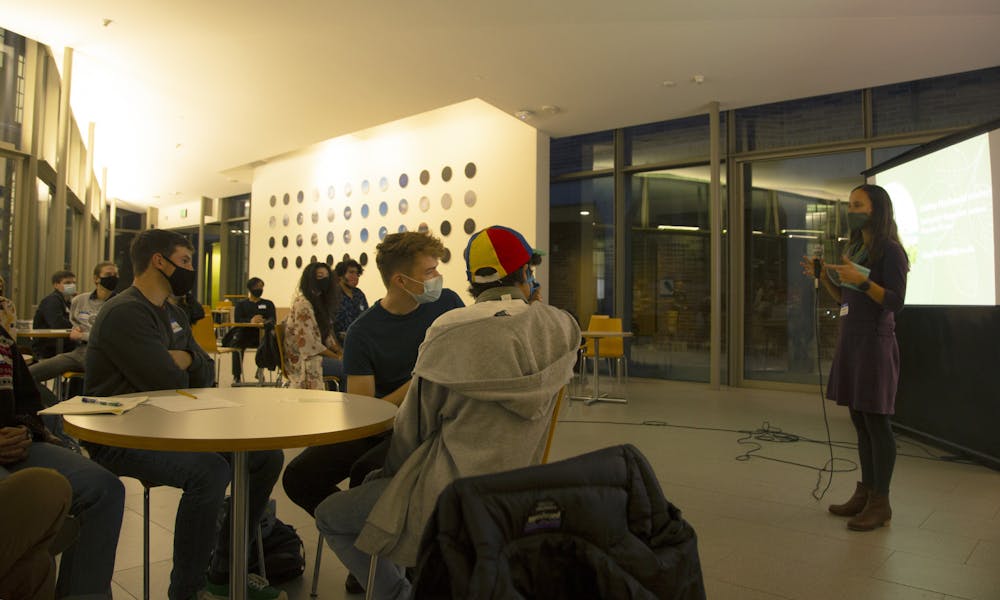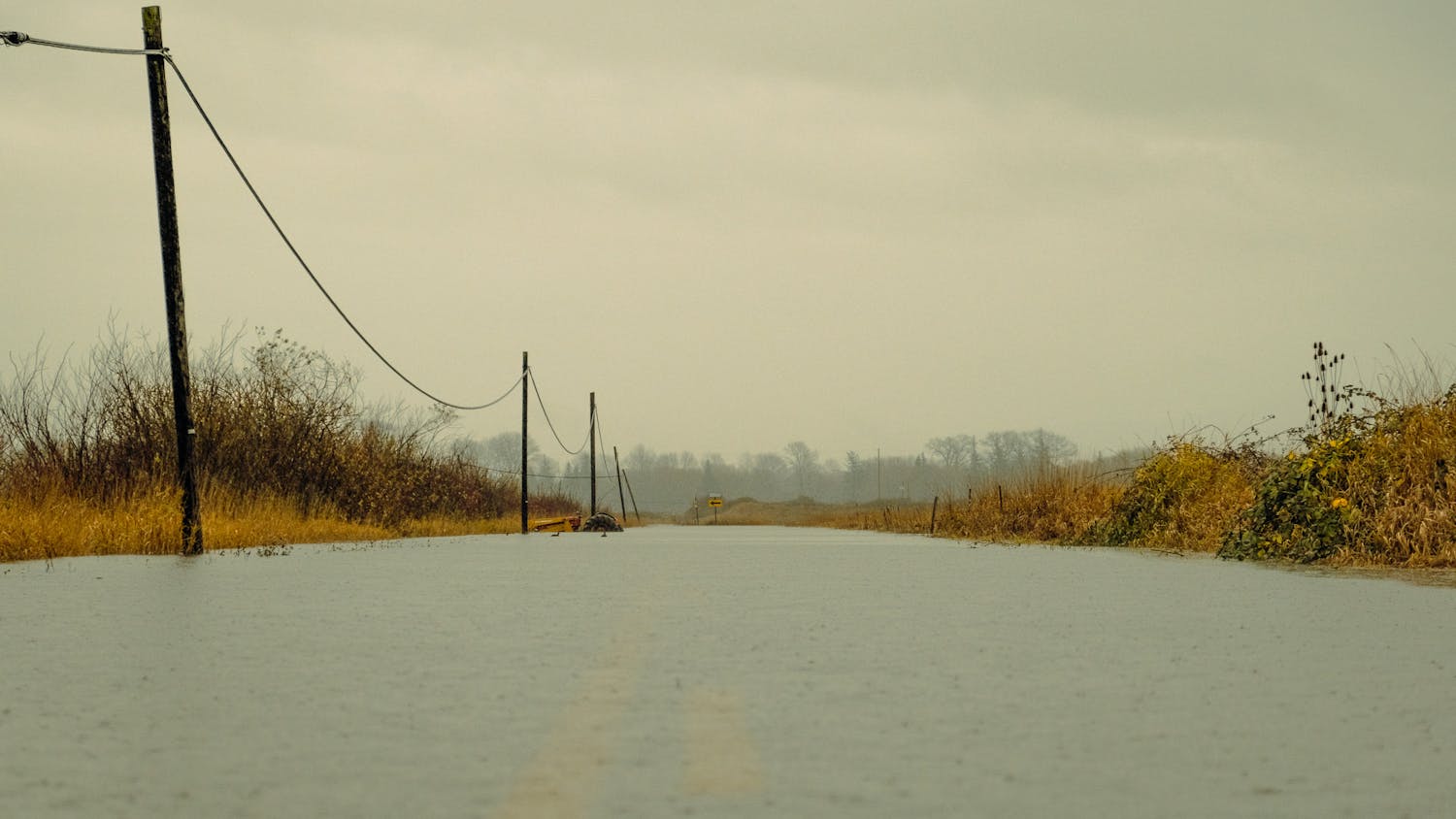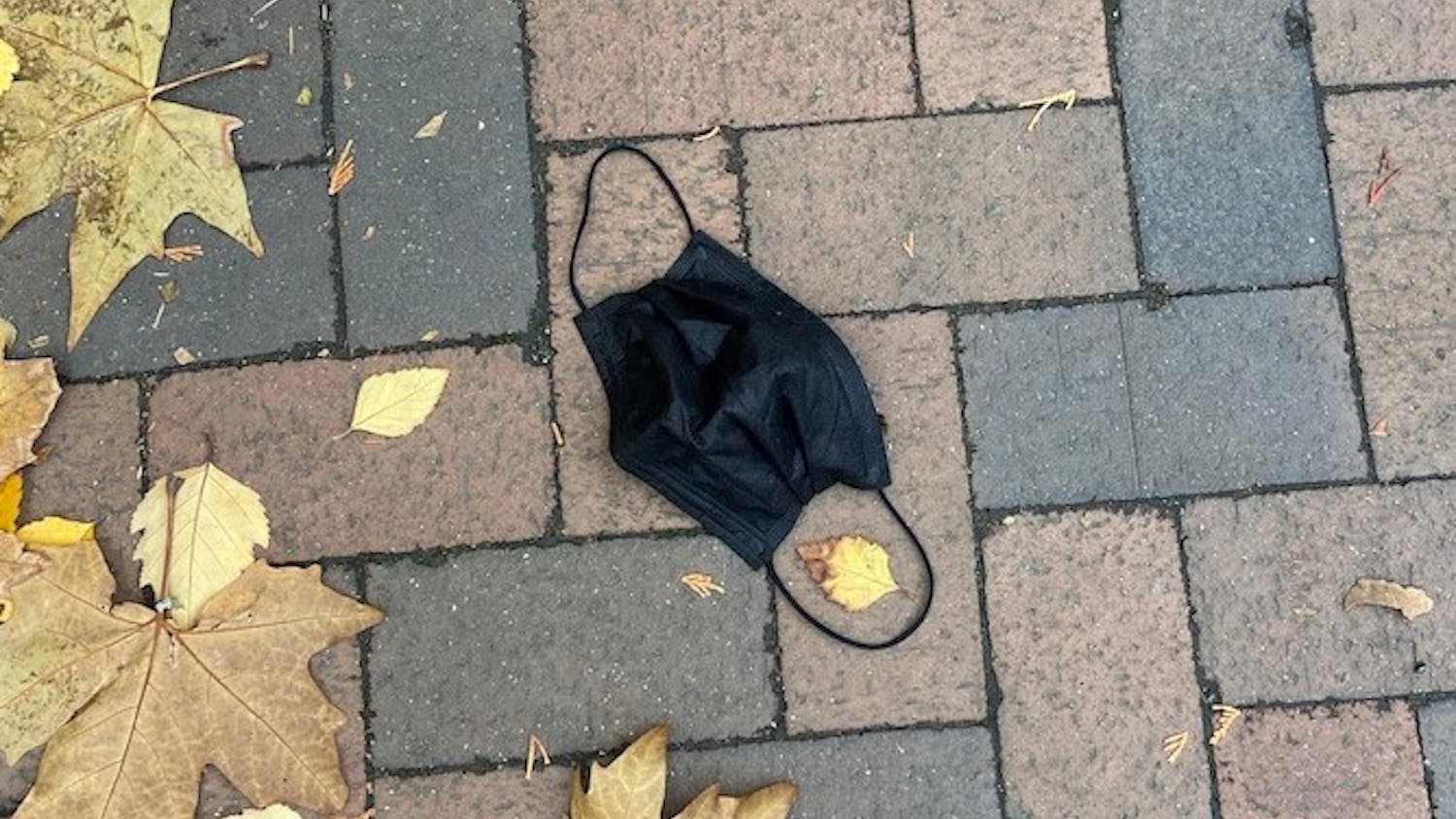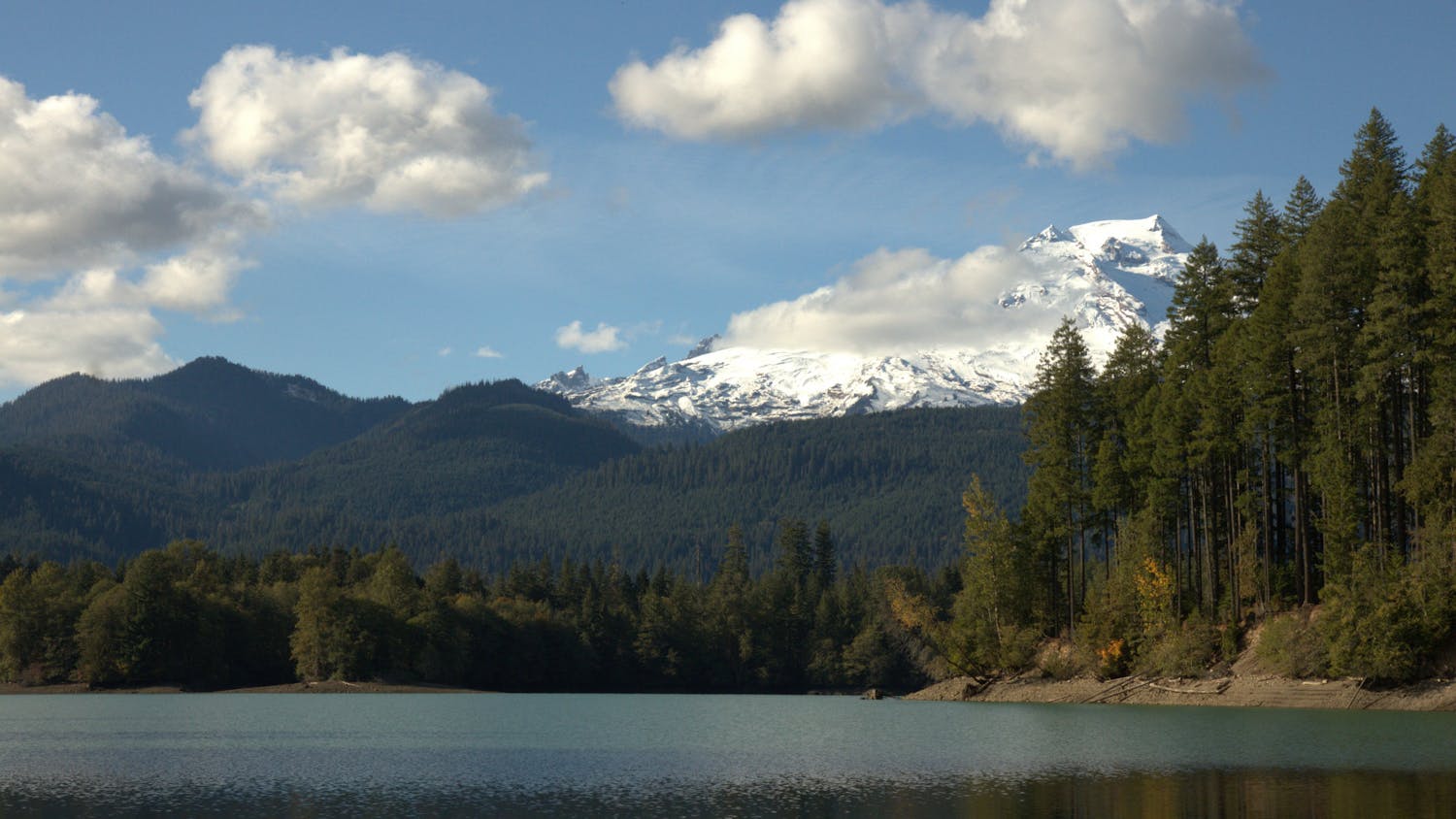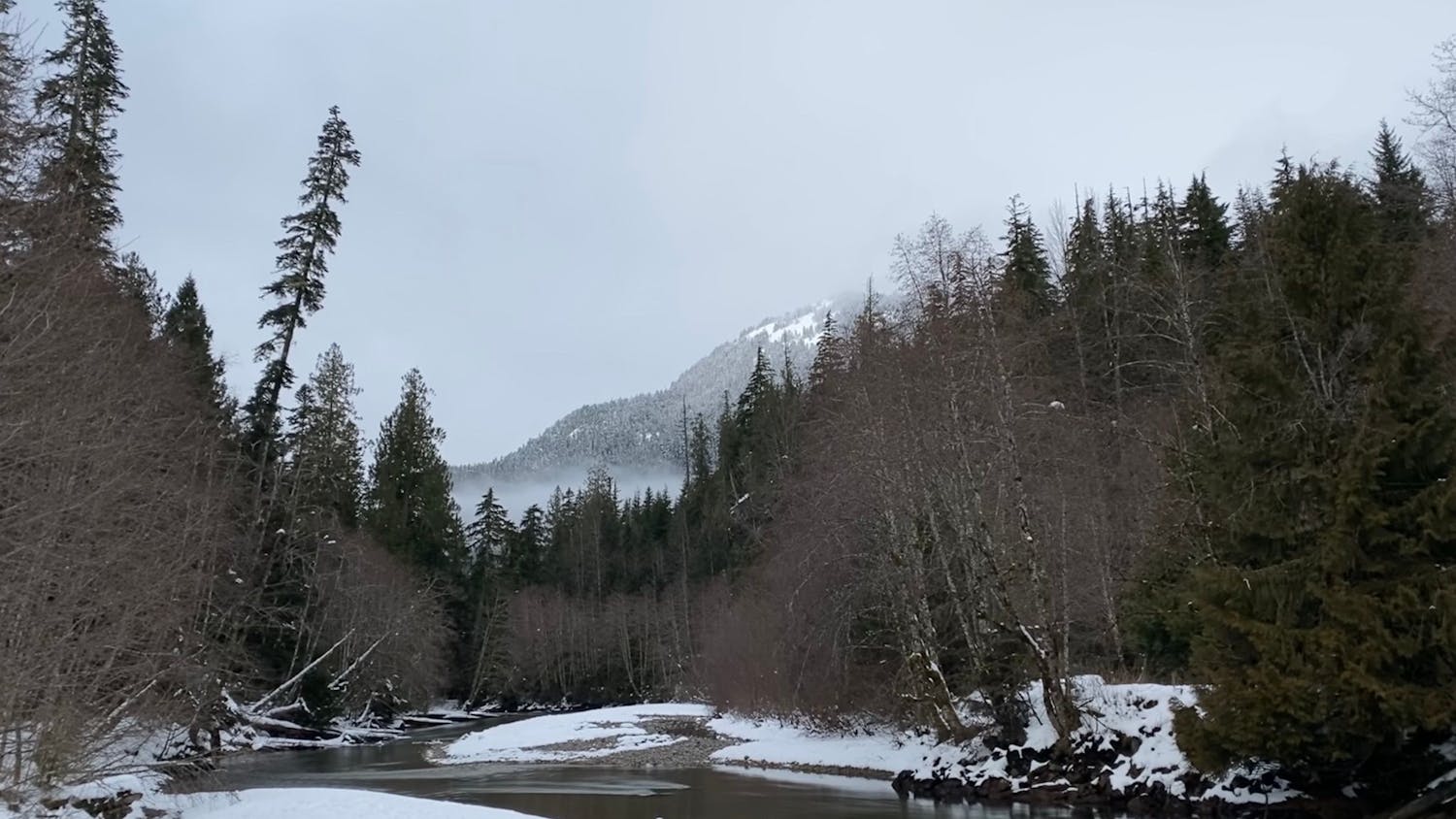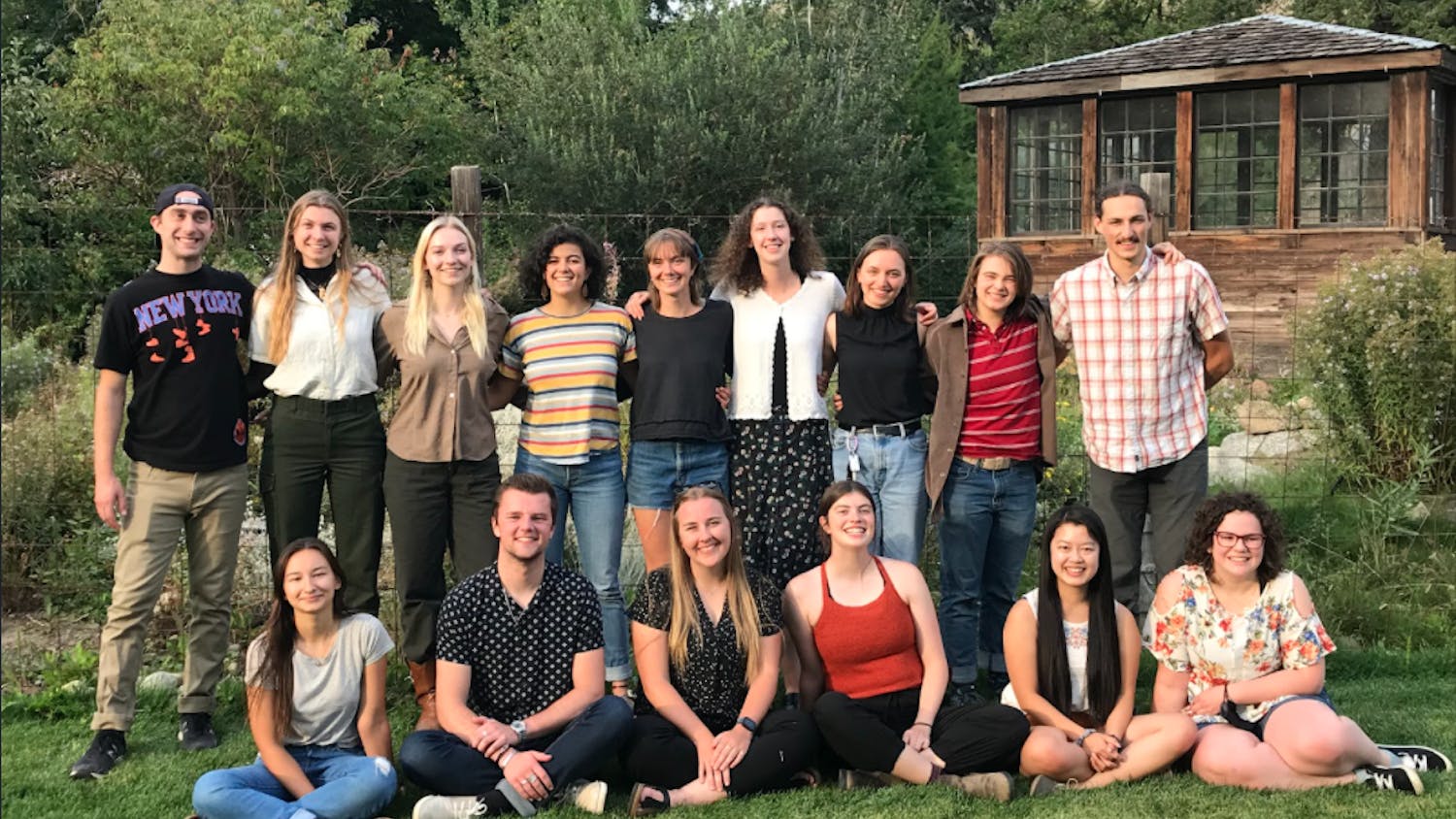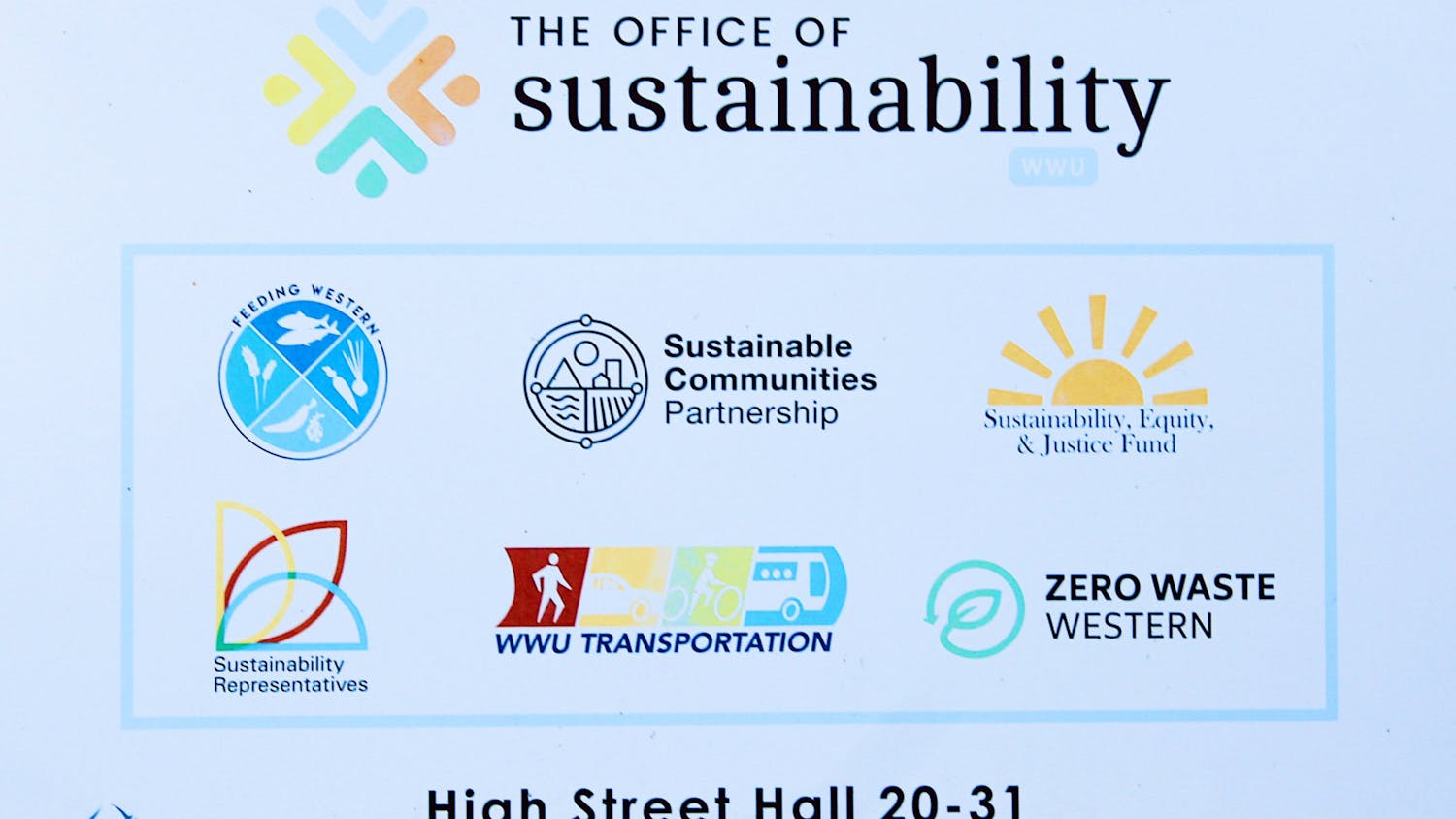Students from various different sustainability-focused clubs at Western Washington University came together to discuss how Western can become a more sustainable campus at the Sustainability Round Table on Nov. 16.
Alyssa Tsukada, Sustainability Engagement Institute student ambassador, Laura Wagner, Associated Students vice president for Sustainability and Environmental and Sustainability programs director, Jose Ortuzar, all worked together to get the Round Tables started.
The Round Table was primarily dedicated to giving students from different sustainability clubs on campus an opportunity to meet and brainstorm ways to improve sustainability at Western.
Though the Round Tables may have only begun this year, Tsukada said Western students have been asking for an event like this for a long time.
“The idea for the Sustainability Round Tables wasn’t necessarily ours to begin with,” Tsukada said. “I think it was a sentiment that a lot of students have had throughout working in sustainability across Western.”
Tsukada and other sustainability leaders on campus also felt that bringing different students across campus who are engaged in sustainable work together is an important first step in accomplishing some of the goals laid out in the Sustainability Action Plan, a 122-page document of objectives that are meant to make Western a more sustainable campus.
“I think there’s been a lot of talk around the SAP because people feel like there hasn’t been enough transparency around the metrics or who’s taking on what, and a lot of that has resulted from a lack of communication between all levels at Western,” Tsukada said. “We wanted to have a little more education around the SAP and demonstrate how students can have a unified body in helping uphold and work towards these long-term, really institutionalized goals.”
The Round Table gathered students from various sustainability-focused organizations on campus together, including the Sustainability Engagement Institute, leaders from sustainability-focused clubs on campus, such as the Residence Hall Reuse Program and Students for Renewable Energy, as well as students looking to get connected with those clubs.
“I came to this event so that I could connect with more people, learn what’s going on and actually get involved,” third-year Ian McCouri said.
Besides being a place for facilitating conversation between students, The Round Table also included a talk from state representative Alex Ramel.
Ramel discussed the heating district plans for Bellingham and what Western can do to be more engaged in clean energy use.
“The single biggest thing that Western Washington University can do as an institution to reduce its greenhouse gas footprint is to upgrade the infrastructure,” Ramel said.
Ramel suggested replacing the fossil-fuel-heated steam lights on campus and substituting the hot water system with one that can connect to clean and renewable energy.
He also mentioned there are some climate-related policies in the coming legislative session that students should make sure to vote on.
This was the second Sustainability Round Table to occur, with the first having taken place on Oct. 20. They will continue throughout the school year, though an exact schedule has not been determined yet.
Katie McNabb (she/her) is a senior reporter for The Front this quarter. She’s a fourth-year double-majoring in English and journalism. Her past reporting has focused on science and the environment. In her free time, she enjoys reading, exploring Bellingham with friends and experimenting with plant-based cooking.
You can reach her at katiemcnabb.thefront@gmail.com


